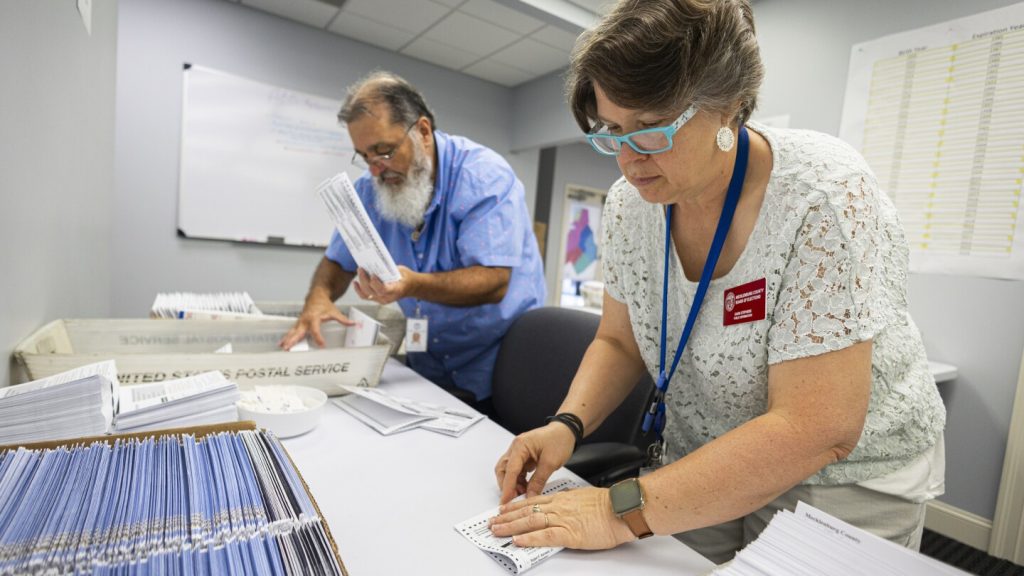As November’s election approaches, several states are implementing new rules and changes to their election processes. In Georgia, election workers will now be required to hand count the number of paper ballots at polling sites, a move that some critics fear could delay the reporting of results. In North Carolina, students and university staff are now allowed to use digital IDs to vote under the state’s new photo voter ID law. Wisconsin has reinstated the use of ballot drop boxes, although their use is voluntary in some conservative towns. These changes are impacting how Americans will vote, tally ballots, and administer and certify the upcoming election.
The last-minute changes to election rules can lead to confusion for voters and election officials, according to Megan Bellamy, vice president of law and policy for the Voting Rights Lab. With Election Day just weeks away, the variations in state election processes are creating challenges. Among the new or modified election processes are hand-counting requirements in Georgia and Arizona, where election workers will count the number of ballots by hand to ensure accuracy. Similarly, in North Carolina, digital IDs are now allowed for voting, while Wisconsin has re-legalized ballot drop boxes, albeit with some limitations in certain jurisdictions.
In Wisconsin, the use of ballot drop boxes has been a point of contention, with some conservative towns opting out due to security concerns. Meanwhile, changes in Pennsylvania could impact the counting of provisional ballots for voters whose mail-in ballots were rejected for minor mistakes. Other states, such as Florida and Arkansas, have also seen changes in their election processes, including requirements for voter identification and rules regarding electronic signatures for voter registration.
After the votes are in, states like Georgia and New Hampshire have implemented new rules for the post-election period, such as certification processes and audits to ensure the accuracy of the vote. In Nebraska, efforts to change how electoral votes are allocated have faced opposition, while Maine remains the only state that allocates Electoral College votes by congressional district. As Election Day approaches, the impact of these changes on the voting process and the certification of results remains a topic of discussion and debate.
Overall, the changes in election rules and processes across multiple states reflect the complexity and variability of the American electoral system. While these changes are aimed at ensuring the integrity of the voting process, they can also create challenges and confusion for voters and election officials. As the country prepares for the upcoming election, it will be crucial to closely monitor these changes and ensure that voters are informed and able to participate in the democratic process effectively.















